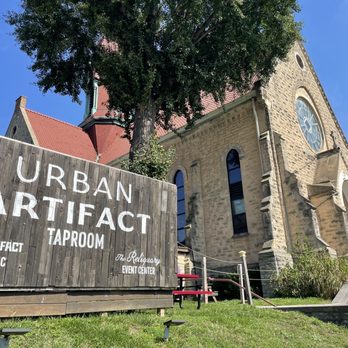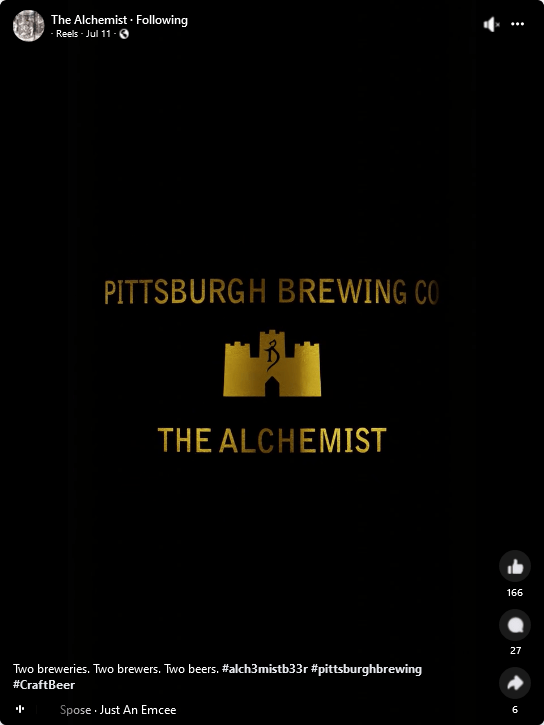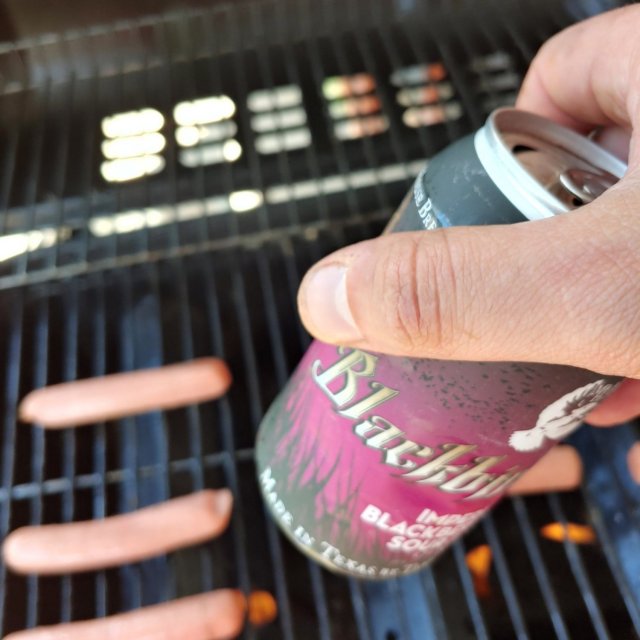Beer Education: Series Overview
Well, like I said at the end of Module Ten, I would do a series wrap-up afterwards. If you’ve followed along, and if you have done the program / MOOC as well, we are all done now. It took roughly two months to get it completed, as my first post about the Series was on March 26th and I finished the class and Module Ten on May 26th. So two months from start of the blog about it to the end of the actual module, and another day or so for this final wrap-up. Not bad, and an interesting way to pass the time, especially during this quarantine and lockdown.
Speaking of that, things are progressively re-opening here in Central PA area, as well as in the nation as a whole. We’ll see how that goes, and with fingers crossed, maybe soon we’ll be sharing a pint together at a brewery.
As I said from the beginning of the series, I was doing this class without the certificate, so all of the ‘verified track learner’ pages and assessments were off limits to me. I would love to hear from anyone in the comments section who took the full version of the class, and paid for the certificate and got to see the verified track learner’s content pages. My take on that is this though – the certificate would be NICE to have, and would LOOK good… but, it is ultimately unneeded. The information learned is the real value, and any brewery that you are looking to use this for, will most likely be happy with you having the knowledge over the piece of paper. (Of course, the piece of paper would help a bit more, but I don’t think its a massive jump in ‘helping’ or value.) Brewing, and brewery industry jobs, are kind of still in a medieval sense, or in a ‘wild west’ kind of territory. Most breweries are opened with the owner being the head brewer (for craft breweries in America), and most of them got their start home brewing. So you have a lot of basically self-taught people opening their own businesses who learned by home brewing, not professionally. Now, this isn’t always the case, but it seems to happen frequently enough to bear out the point.
Thats not to take away from getting the certificate. Doing so will be an addition, and will help you in jobs. But so is just taking this class. Just show some proof of doing it, and answer questions and show your knowledge. There is other free (and pay-for) resources and certificates online, getting some of them will help as well.
So lets recap the course a bit. There was ten modules, not counting assessments and all that, there was ten modules with different topics for each. In each module was segments, but lets broadly just look at the modules.
- Module One: The History of Beer Brewing
- Module Two: Barley and Malting
- Module Three: Water
- Module Four: Hops and Spices
- Module Five: Yeast
- Module Six: The Steps of the Brewing Process
- Module Seven: Fermentation and Maturation
- Module Eight: Filtration and Packaging
- Module Nine: Beer Quality and Stability
- Module Ten: Beer Assessment and Tasting
In all of the discussion pages, so far, I’ve received two comments / replies back in the actual modules. I will post my comment and the responses here.
First:
My comment: “I find it in interesting in America that especially in the last few years there has been a greater move to go from bottle to can. Likewise from growler to crowler. I actually tend to prefer bottles for the 12oz and 16oz varieties, but prefer crowler (32oz) over the growler (32oz). Can’t exactly place why, perhaps because of a taste difference. Though I’m told by many there is no taste difference, and The Alchemist brewery even says to drink their IPAs from the can rather than from the glass. (I do typically pour into glasses from either can or glass; unless busy grilling or mowing or whatever, then I drink straight from the can or glass.)
Curious what other’s thoughts are on the glass bottle vs. can debate.”
The response:
“By: kr3846
In my opinion cans are the way to go 100% of the time. They are basically mini-kegs. They protect better against light and oxygen way better than crown/ bottles ever could. Which is a good enough reason to deem them the winner out-right. They are lighter weight which cuts down on shipping cost, both as a raw material and as a finished product. This also means they can be packed more cans per truck/ boat which ultimately leads to less consumption of fossil fuels. They are also 1000 times more recyclable than glass. In America, very few if any breweries (if any) are doing glass bottle returns. Plus, with cans you do not have the concerns with breaking glass around swimming pools, patios, backpacking, camping, etc.
I think (in America at least) there is still a stigma about drinking from a can. As if it is ubiquitous with large crappy breweries like AB-InBev. People seem to see drinking from a bottle as the “craft” or “artisanal” option. I wish we would move past this and accept cans as the clearly superior form of packaging they are for all the reasons listed above.
That being said, in the growler/ crowler debate, I think growlers are the way to go for the simple fact that they are re-usable. The single use aspect of crowlers, while convenient, is not very environmentally friendly. I do not have nearly the strong opinions in this debate than I do in the can vs bottle debate.
As for Heady Topper, they say to drink from a can because the beer looks like shit. Or the more “scientific” reason would be to keep the hop compounds contained in the can rather than losing them to the volatility of pouring into a glass.
Cheers!”
Second:
My comment: “Another great module. I have really been enjoying this course! I am learning a lot!
-B. Kline
https://thebeerthrillers.home.blog/“
The response: “By: StijnS (Staff)
Hi Ben,
Thanks for these nice words. We also appreciate that you keep a blog on your progress throughout the MOOC.
Have fun with the last module of the MOOC,
Stijn”
Overall, I really enjoyed the MOOC and the modules were all well done and very informative. The various expert clips were especially interesting and educational. For those, looking to further their beer or brewery knowledge, or looking for something to do (most modules were very quick and not extremely time consuming), or for someone looking for a foot in the door at a brewery or just hoping to better themselves for a brewery position (or one they already have), I would highly recommend this course.
I will be posting more information on possible other classes I do, and others that I’ve done in the past, when I get to the next beer education series, so be on the alert for that. And as we enter June, be ready to see a lot more beer reviews and brewery reviews as places start to open back up.
Until then, please stay safe and healthy, we’re almost there! Cheers!
-B. Kline
The Beer Education Series:
** EdX: The Science of Beer Brewing
* Beer Education: Series
* Beer Education: Syllabus
* Beer Education: Introduction
* Beer Education: Module One: The History of Beer Brewing
* Beer Education: Module Two: Barley and Malting
* Beer Education: Module Three: Water
* Beer Education: Module Four: Hops and Spices
* Beer Education: Module Five: Yeast
* Beer Education: Module Six: The Steps of the Brewing Process
* Beer Education: Module Seven: Fermentation and Maturation
* Beer Education: Module Eight: Filtration and Packaging
* Beer Education: Module Nine: Beer Quality and Stability
* Beer Education: Module Ten: Beer Assessment and Tasting
* Beer Education: Series Overview




